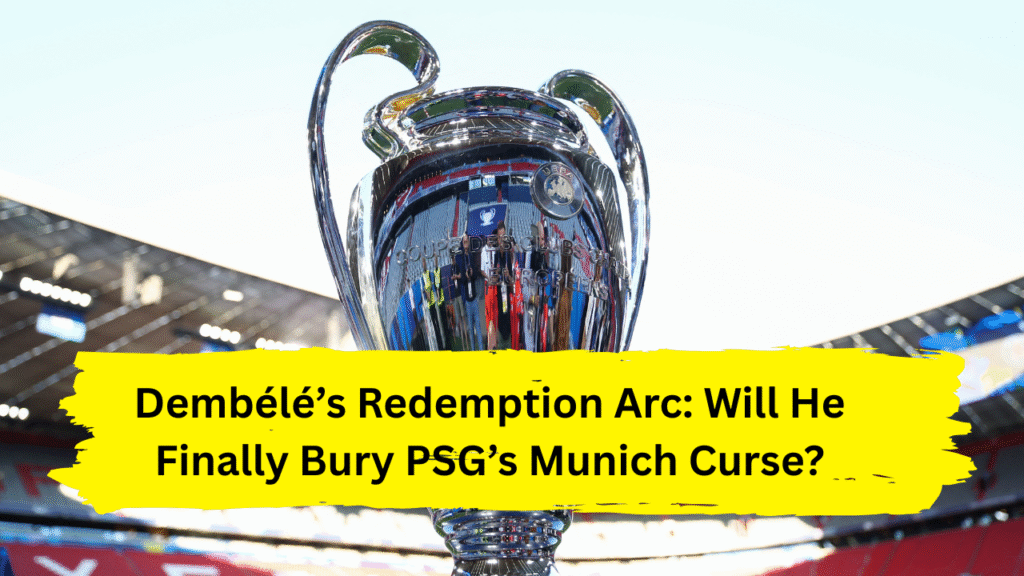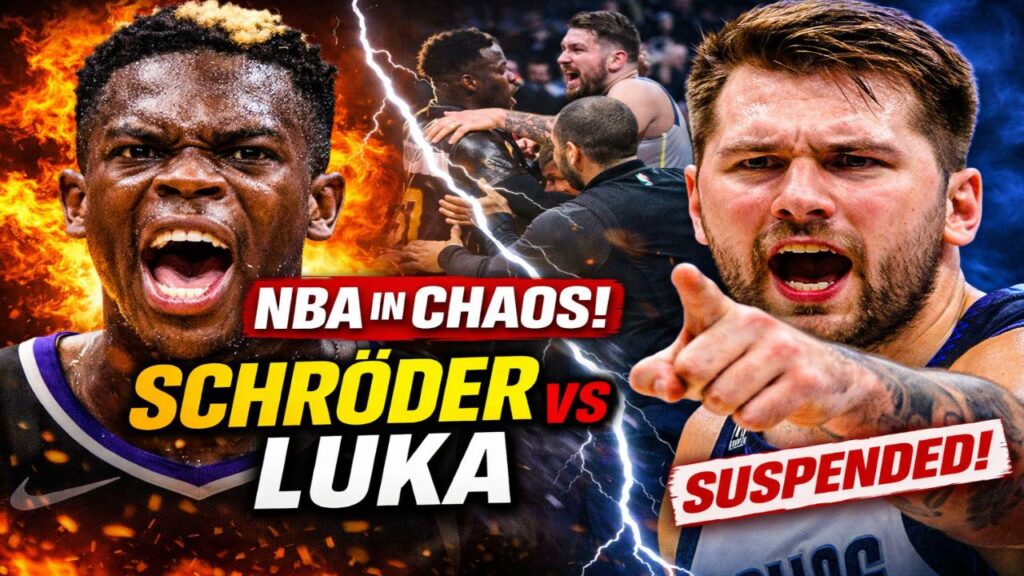The weight of history presses down on Paris Saint-Germain as they step onto the Allianz Arena turf. Fourteen years of Qatari investment, galactic signings, and agonizing European near-misses culminate in one night against Inter Milan. Yet, the figure carrying the most potent promise of liberation isn’t a fading superstar or a record-breaking purchase. It’s Ousmane Dembélé, the once-mercurial enigma now transformed into a 33-goal force of nature, poised to exorcise the ghosts of Kylian Mbappé and deliver the only trophy that truly matters: the UEFA Champions League .
From Unfulfilled Promise to Unstoppable Force: The Dembélé Metamorphosis
For years, Ousmane Dembélé embodied tantalizing potential frustratingly unrealized. His explosive raw talent – blinding pace, ambidextrous trickery – was undeniable, yet often flickered erratically. At Barcelona, burdened by a €150 million price tag and a reputation for inconsistency and injury, he became a symbol of unfulfilled promise. Even his first season at PSG, yielding a meagre five goals, did little to dispel doubts . The narrative was set: a gifted player who couldn’t translate his brilliance into consistent, decisive output.
This season, that narrative has been spectacularly shattered. The departure of Mbappé to Real Madrid wasn’t a death knell for PSG’s attack; it was the catalyst for Dembélé’s astonishing rebirth. Freed from the gravitational pull of the Galactico era and empowered by the trust of Luis Enrique, Dembélé has undergone a metamorphosis that borders on the miraculous. The statistics paint a staggering picture: 26 goals in just 27 matches in 2025 alone, including crucial strikes against European heavyweights like Manchester City, Liverpool, and Arsenal. His eight Champions League goals this campaign have been instrumental in PSG’s run to Munich, featuring winners in tight semi-final legs and a devastating hat-trick against Stuttgart .
Perhaps the most telling stat is his conversion rate. Expected Goals (xG) models suggested he should have scored around 14 times in 2025; instead, he netted 26 – a staggering +12 overperformance showcasing a newfound, ruthless efficiency in front of goal that banished his old reputation for profligacy . This isn’t just improvement; it’s a complete reinvention. Luis Enrique, the architect of this transformation, lauds him not just as a scorer, but as a leader: “Dembélé has been one of the best players of the season, if not the best one. He scores, he passes, he fights, he defends… that’s a real leader” .
The Architect and the Anchor: Enrique’s Trust and the Hakimi Connection
Luis Enrique’s impact cannot be overstated. He inherited a team built around individual brilliance and reshaped it into a cohesive, relentless unit. His genius with Dembélé lay in understanding his versatility and granting him the freedom to thrive. A pivotal moment came with a crucial conversation positioning Dembélé more centrally, often as a No. 9 or false nine. “It’s a position that I enjoy playing,” Dembélé revealed. “It’s about creating uncertainty… Sometimes it’s just about driving them crazy, really” . This tactical shift unlocked Dembélé’s ability to find space, exploit gaps between defensive lines, and unleash his devastating finishing with both feet.
Complementing Dembélé’s central menace is the dynamic, telepathic understanding he shares with right-back Achraf Hakimi. This partnership has become a cornerstone of PSG’s attacking play. Hakimi, blessed with searing pace and intelligent overlapping runs, provides the perfect outlet for Dembélé’s tendency to drift wide or drop deep. Their connection is quantifiable – their 13 line-breaking passes are a Champions League tournament-high duo stat – but it’s also instinctive . Hakimi’s raids down the flank stretch defences, creating space for Dembélé to exploit centrally, while Dembélé’s vision and passing ability frequently find Hakimi’s surging runs. It’s a symbiotic relationship built on mutual understanding and shared intensity.
Hakimi himself embodies the new PSG spirit – a team ethos replacing the individual-focused Galactico era. “The biggest change right now is that we’ve created a team, and all the players are running for each other,” Hakimi stated, highlighting the collective shift. “When you see attackers like Dembele… running back, it gives us the strength to run with them and play as one unit” . This spirit, where even the star forward tracks back relentlessly, defines Enrique’s PSG and is crucial against an Inter side known for its defensive resilience and punishing transitions.
Erasing the Ghosts: Mbappé’s Shadow and PSG’s Ultimate Quest
The spectre of Kylian Mbappé inevitably looms. The French superstar, PSG’s talisman for seven seasons, departed for Real Madrid without delivering the club its ultimate European prize. His absence left a void not just in goals, but in narrative. Could PSG succeed without him? Could they even be better? Dembélé’s record-shattering season, culminating in this final, provides a resounding answer .
Dembélé’s rise symbolises the club’s broader transformation. Gone is the dependence on singular, global icons like Neymar or Messi. In its place is a vibrant, youthful collective built around relentless pressing, tactical flexibility, and shared responsibility. Dembélé, once seen as an erratic luxury player, now epitomises this new identity: versatile, hardworking, and devastatingly effective. Winning the Champions League wouldn’t just be a triumph; it would be the ultimate validation of this post-Galactico project, proving that cohesive teamwork and intelligent coaching can surpass the sum of expensive individual parts .
Munich: The Stage for Redemption’s Final Act
For Dembélé, the stakes transcend club glory. This final represents the culmination of a personal redemption arc years in the making. From the unfulfilled potential and injuries at Barcelona, the criticism over his lifestyle and finishing, to the supporting role in Mbappé’s shadow – every setback has led to this moment. A match-winning performance in Munich, crowning PSG as European champions for the first time, would not only deliver the trophy the Qatari project has craved for 14 years but would also catapult Dembélé into the very heart of the Ballon d’Or conversation, achieving a feat that even eluded Mbappé in Paris .
Standing in his way is not just Inter Milan’s veteran grit and defensive fortitude, but perhaps his own history. A reminder of his past profligacy surfaced in the recent French Cup final, where a string of misses evoked old doubts . Can the new, clinical Dembélé definitively banish those ghosts on the biggest stage of all?
As the Munich lights shine down, Ousmane Dembélé carries the hopes of a club, a city, and his own remarkable journey on his shoulders. His 21 league goals, his 8 in Europe, his connection with Hakimi, and his transformation under Luis Enrique have all set the stage. Victory against Inter wouldn’t just be PSG conquering Europe; it would be the ultimate validation of Dembélé’s perseverance, a redemption so profound it finally silences the whispers of what might have been with Mbappé and etches his name, not as a mercurial talent, but as a Paris Saint-Germain legend. The symphony of his career, long marked by discordant notes, awaits its perfect, triumphant finale.


